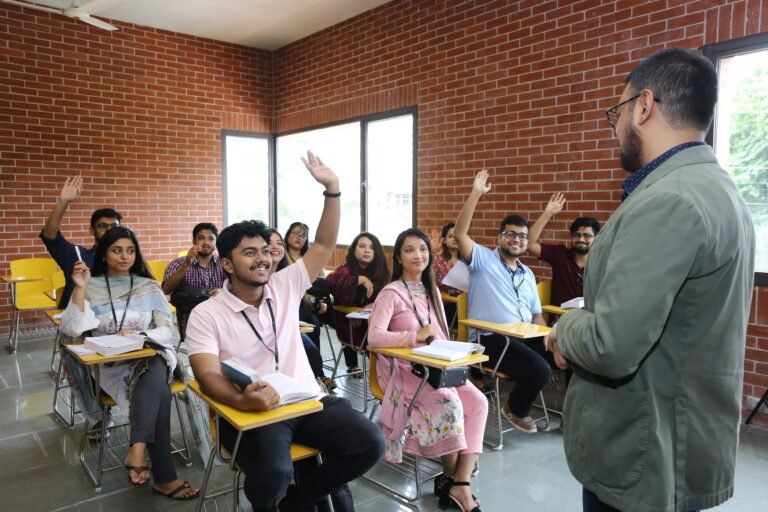The Role of Data in Waste Management: A Case Study of Surabaya
By Katie Safford
In 2018, GKI partnered with the United States Department of State, Second Muse, and Circulate Capital to look at Marine Waste through a systemic lens.
This team undertook a systems sensing process that highlighted many forces driving Surabaya’s waste management system. Some of the most notable forces include; policy design and enforcement, the role of the informal sector, human perception of Surabaya’s performance, and data collection and management. We developed the systems map (below) through a series of interviews with local stakeholders, to highlight the challenges we identified through this process.
In this case study, we have chosen to zoom into the issue of data and transparency. One of the key barriers we encountered was a lack of access to quality, reliable data. Without data-backed decision making, waste management systems and local and national policies cannot be designed effectively.

Why does Marine Debris matter?
Marine debris is a ubiquitous and transboundary challenge. Humans introduce marine waste into oceans from a wide range of deliberate and non-deliberate sources, including littering, dumping, and stormwater runoff. If our waste is not properly handled and accounted for while on land, waste ends up in our oceans leading to ramifications such as loss of habitat, loss of animal lives, contamination of the food we eat, and loss of tourism.
These negative impacts affect flora and fauna living at all depths of the ocean. Creatures in the ocean ingest solid waste or become entangled in fishing nets, causing animal death and altering reproduction rates. Plastic waste introduces chemical additives into the ocean, disrupting the biological process of marine species. Consequently, marine waste bears potential economic implications for tourism sectors and maritime activities, such as fisheries and the aquaculture sectors. Ocean plastic waste also affects the food humans eat, with plastic particles present in the seafood.
The Municipal Solid Waste Management Challenge in Indonesia
China’s “National Sword” policy, enacted in January 2018, banned the import of most plastics and other materials into China. [1] This policy caused a global shock to the world’s marine debris system. For the past 25 years, China handled nearly half of the world’s recyclable waste. In the time since China’s ban on importing plastics, many other countries in Southeast Asia, including Indonesia, have been importing huge quantities of waste they are not capable of managing. In addition to this imported waste, Indonesia is undergoing a process of rapid urbanization and thus is expected to generate increasing amounts of waste. China’s recent policy change has led Indonesia to become the world’s top contributor to marine plastic debris. [2]
Currently, around 39% of plastic waste in Indonesia is collected. In rural and remote areas, this figure is as low as 16%.[3] The country needs to aggressively invest in its waste-collection infrastructure, both in the formal sector (government employees) and in the robust informal sector (waste pickers, many of them women, who play a significant role in national waste management efforts).
Why is data important in designing a Municipal Solid Waste Management System?
The planning and design of municipal solid waste management systems require accurate prediction and forecasting of solid waste generation. Forecasting future waste generation is most accurate when historical records and current data are complete and comprehensive. The more data you can draw from, the more accurate your predictions.
In Indonesia, historical records and current data are severely lacking. Because there is not enough data across Indonesia, research studies such as the World Bank and National Plastic Action Partnership (NPAP) have large statistical discrepancies. These studies utilize the data that is available; however, this data does not provide comprehensive insight into the systems and thus the research studies have to rely on assumptions to fill in the data gaps. Each study uses different assumptions which leads to large statistical discrepancies. For example, according to the World Bank, Indonesia generates 175,000 tons of waste a day. [4] About 24,500 tons of that waste is plastics and more than 80% of Indonesia’s waste is not sorted, meaning that this plastic is not recycled but rather ends up in landfills or in the ocean. In contrast, the NPAP study shows slightly different estimates of plastic flows in Indonesia. The NPAP estimates 18,630 tons of plastic waste per day, nearly 6,000 tons less than the World Bank Study. Additionally, the NPAP reports that Indonesia’s generation of plastic is growing by 5% annually.
These discrepancies in research studies can only be mitigated by improving reporting and monitoring across the waste management system in order to limit the number of assumptions being made to determine total waste estimates. Because of these discrepancies, decision-makers are often acting in the dark and cannot make evidence-based decisions to improve waste management.
Why is it so hard to collect waste data in Indonesia?
The waste management system in Indonesia is a complex system. Waste travels through the hands of many people before it ends up in a landfill, at a recycler, or in the ocean. Because waste passes through so many stakeholders it is extremely difficult to collect quantitative or qualitative waste flow data. Furthermore collecting reliable data is especially difficult due to inadequate infrastructure, technology, and resources. Resources for data collection are quickly depleted due to the complexity of this multi-staged and multi-stakeholder system.

In addition to the complexity of this system, there are also extreme power dynamics at play. There is a lack of trust between stakeholders and incentives are misaligned across the system. Informal sector stakeholders are often not recognized as an integral part of the waste management system and are not included in training on the importance of data collection. They are not engaged in data collection activities and as a result, often aren’t in a position to contribute their knowledge and data points.
As Indonesia modernizes its infrastructure and technology, increased education on data collection will be critical. In addition to education, incentives will need to be put in place to highlight the importance of accurate data collection. Some formal Government programs, such as waste banks, have shown that data collection can be done effectively and lead to an increased understanding of waste generated and collected at the household level. However, waste banks do not exist in all cities and rarely in rural areas; there is not enough data across the country to properly estimate the total waste generated, collected, and recycled in Indonesia.
Utilizing data unrelated to waste to make waste management to make decisions
In Southeast Asia, we look to Taiwan as the pioneer in waste management and recycling. Taiwan was once deemed the “Garbage Island” but now has one of the highest rates of recycling in the world [6]. Taiwan’s story of transformation is one of community behavior changes in recycling practices. In order for the systems to support more recycling, Taiwan harnessed data collection to inform waste management.
First, Taiwan collects data on Refuse & Recycle Waste. Data on refuse (landfill waste), food waste, and recycled waste is the most relevant and preferred type of data for informing decisions. Decision-makers are able to limit the number of assumptions about the amount and type of waste they are dealing with. When thinking outside of the box about data collection, researchers found Electricity Consumption to be strongly correlated with the amount of recycled waste produced. Thus, statisticians are able to leverage energy consumption data to extrapolate the amount of solid waste generation. Water Consumption and Land Area & Population have similar correlations to the amount of waste produced and can serve as an index to analyze solid waste generation.
Data as one step toward systems change
In Indonesia, waste management is a deeply rooted systemic issue. While the challenges in Indonesia seem insurmountable, other nations have demonstrated that effective and sustainable waste management is possible. In this case study, we dove into the issues of data, and how data collection and usage in Indonesia is hindered by policies, community engagement, and lack of education and infrastructure. Innovative approaches to collecting data and leveraging existing data have proven effective in other countries. innovation, however, will not solve this problem alone. Indonesia’s data challenges will be solved when the government, private and public sector, communities, and waste management stakeholders come together to make data collection feasible and mutually beneficial.







